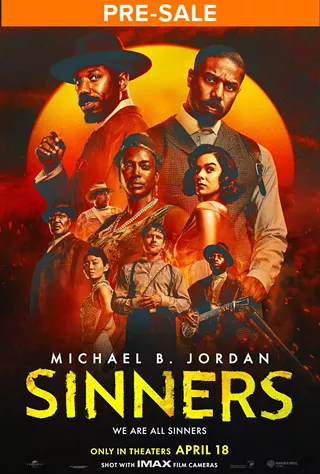A week later, art cinema stalwart Joe Esposito called Brenna Lacey at the Volk company, and put a sign in the window of his Loft Cinema on East Speedway: For Sale. "I'm getting close to 60, and I've been involved in the Loft for 26 years," Esposito says. "Nothing goes on forever."
Sorry, Chuck.
Esposito hopes someone will step forward to carry the torch, but he's frank that the $1.1 million price tag is ultimately a real estate deal. He's put the word out nationally as well, to specialty theaters like the Angelico in New York. He says being his own landlord since the early '90s is what kept him from "being mowed down" in the brutal business of independent cinema.
While that $1.1 million price tag is daunting, only $140,000 of it is the business. The rest is the appreciated value of that 80,000 sq.ft. parcel, which includes the 8,800 sq.ft. theater.
"It has been, unquestionably, a labor of love. I'm not going to sell everything for less than the property is worth...so that somebody else could then turn around and sell it for a profit. But I think I've priced it so somebody can come in without a lot of overhead to worry about. The roof needs to be resealed, that's about it."
The Loft is Tucson's largest screen, and the city's only full-time art film theater. It was also the champion of The Weekly's annual Best of Tucson poll for more than a decade.
"Somebody would have to fill that vacancy, because I don't think the chains are going to do it, and I don't think the Screening Room is equipped." In the hardball world of film distribution, he calls the multiplex chains' bidding process "just blatant, strong-arm, anti-trust violation."
It's a claim Phoenician Dan Harkins took to court years ago, and his healthy settlement with AMC formed the foundation of the string of theaters he owns today.
"There are always twists," Esposito says. "There's no organic trend." And while he's chosen his battles outside of the courtroom, as an aficionado he's disappointed by what he calls "the boom and bust mentality of perfectly good films" in Hollywood, and the way H-wood is displacing the European market.
"Whether you have a good year, or just break even, depends on the product. This commercialization of so-called adult or art product, like Shakespeare in Love, is difficult. Unless a film is going to make a lot of money, the studios abandon it right away, and you (the specialty theater) have to beg just to see them."
He also says there are fewer Italian and French films. "That's different now, because of Hollywood movies obliterating the European foreign film market for us. They just can't get on screen if they're competing with Bruce Willis in Italy and France."
Theaters like the Loft are prized among film distributors, though, who see first hand what consolidation means for the larger market: a harder sell for unknown films, and fewer options for taking business elsewhere when the ubiquitous chains say, "My way or the highway."
That means fewer choices for you and me. Not just for foreign and art films, but for "risky," unproven American films like the controversial Citizen Ruth, brilliantly off-beat Fast, Cheap, and Out of Control, and crossover indie films like Smoke Signals (adapted from Sherman Alexie's pointed novel, The Lone Ranger and Tonto Fistfight in Heaven).
"I can't make somebody do something once I'm finished," Esposito sighs, "but I hope somebody comes along and says, 'Let's give it a shot and see if it can work.' "
So do we.









